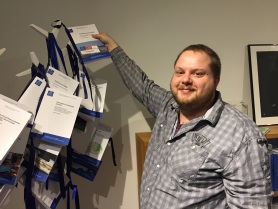No Hypervisor Is an Island: System-wide Isolation Guarantees for Low Level Code
Time: Mon 2016-10-10 14.00
Location: F3, Lindstedtsvägen 26, plan 2, KTH Campus
Subject area: Computer Science
Doctoral student: Oliver Schwarz , TCS
Opponent: Professor Gerwin Klein
Supervisor: Professor Mads Dam
Abstract

The times when malware was mostly written by curious teenagers are long gone. Nowadays, threats come from criminals, competitors, and government agencies. Some of them are very skilled and very targeted in their attacks. At the same time, our devices – for instance mobile phones and TVs – have become more complex, connected, and open for the execution of third-party software. Operating systems should separate untrusted software from confidential data and critical services. But their vulnerabilities often allow malware to break the separation and isolation they are designed to provide. To strengthen protection of select assets, security research has started to create complementary machinery such as security hypervisors and separation kernels, whose sole task is separation and isolation. The reduced size of these solutions allows for thorough inspection, both manual and automated. In some cases, formal methods are applied to create mathematical proofs on the security of these systems.
The actual isolation solutions themselves are carefully analyzed and included software is often even verified on binary level. The role of other software and hardware for the overall system security has received less attention so far. The subject of this thesis is to shed light on these aspects, mainly on (i) unprivileged third-party code and its ability to influence security, (ii) peripheral devices with direct access to memory, and (iii) boot code and how we can selectively enable and disable isolation services without compromising security.
The papers included in this thesis are both design and verification oriented, however, with an emphasis on the analysis of instruction set architectures. With the help of a theorem prover, we implemented various types of machinery for the automated information flow analysis of several processor architectures. The analysis is guaranteed to be both sound and accurate.

